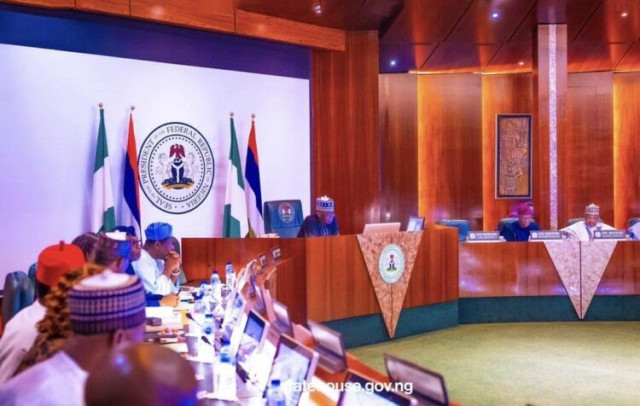The Federal Executive Council (FEC) on Monday approved a raft of far-reaching economic policies and infrastructure programmes.
The FEC endorsed calls for federal and state cooperation to temporarily suspend certain taxes on small businesses and vulnerable groups.
The taxes to be eliminated include levies on road freight, business premise registration, livestock, and market activities.
The council okayed the Economic Stabilisation Bills, to be transmitted to the National Assembly for passage.
The bills embody the recommendations of the Presidential Committee on Tax and Fiscal Policy Reforms set up last year by President Bola Ahmed Tinubu.
The committee, headed by a tax expert Mr. Taiwo Oyedele, seeks to amend the income tax laws, promote the export of goods and services, reform the exchange rate regime and unlock foreign exchange liquidity.
It proposed tax relief to companies that generate incremental employment.
Another bill offered personal income relief to people in private and public employment, from N200,000 to N400,000.
Minister of Finance and Coordinating Minister of the Economy, Wale Edun, said the President directed the setting up of the fund to build greater resilience against disasters, which are increasing frequently due to climate change.
He said the fund would focus on financing disaster response efforts, leveraging contributions from federal, sub-national, and local levels, as well as the private sector and international organisations.
Edun said: “We were in agreement with the decision of Mr. President to start the FEC with the devastating situation of flooding in Maiduguri in Borno State.
“At the end of that discussion, Mr. President directed that a Disaster Relief Fund be set up.
“We need to build greater resilience in the form of a substantial Disaster Relief Fund, separate from the agencies that intervene in disasters. This will focus on the financing.”
Minister of Water Resources and Sanitation, Prof. Joseph Utsev, said the FEC constituted a committee to review the integrity of dams nationwide.
According to him, the committee is expected to develop detailed designs and recommendations for the overall reconstruction of the dam for future use.
Minister of Agriculture and Food Security, Abubakar Kyari, said the President approved the immediate release of 100 trailers of rice, 50 trailers of maize, 30 trailers of sorghum, and 20 trailers of millet.
He said half of the items had already been delivered, with the remaining ones are still on the way.
FEC also approved the construction of 40 houses for judges and justices in the Federal Capital Territory (FCT).
Minister of the FCT, Nyesom Wike, said the aim was to provide secure and convenient accommodation for members of the judiciary.
According to Wike, the 40 residences will be constructed in the Kantampe district, with 20 allocated to the FCT High Court, 10 to the Federal High Court, and 10 to the Court of Appeal.
He said the project is slated for completion within 15 months.
Wike said: “Due to the importance that the President attaches to the Judiciary, he finds it difficult to understand how judges and Justices will be living in rented houses and hotels.
“It is not safe for our judicial officials and not convenient for them to do their work.
“The President directed that the FCT through the FCDA should immediately construct 40 quarters at Kantampe district.
“The FCT court will have 20, the Federal High Court will have 10 and the Court of Appeal will have 10. This will be completed in 15 months.”
Wike said the FEC approved several infrastructure developments to improve access to the judicial quarters.
These, according to him, include, “Construction of an access road from Artillery Road N11 from Mabuchi to the judges’ quarters; an access road from Ring Road 1-N16 Shehu Shagari Way to the judges’ quarters and development of roads connecting to the Court of Appeal Abuja division.
"To reverse the decline in traditional and national values, the FEC approved the establishment of the National Citizens Value Brigade in primary and secondary schools across the country."
Minister of Information and National Orientation, Mohammed Idris, said the Council noted the gradual erosion of values, especially among the younger ones.
“Council approved several changes in our policy to strengthen our national value system.
The National Citizen’s Value Brigade has been approved to be established in all our primary and secondary schools,” he said.
The minister stated that the FEC approved the mandatory inclusion of a national value charter in basic and post-basic school curricula.
"The FEC also approved the standardisation of national symbols. The Council approved the third stanza of the new national anthem as the national prayer, replacing the existing one," he stated.




















